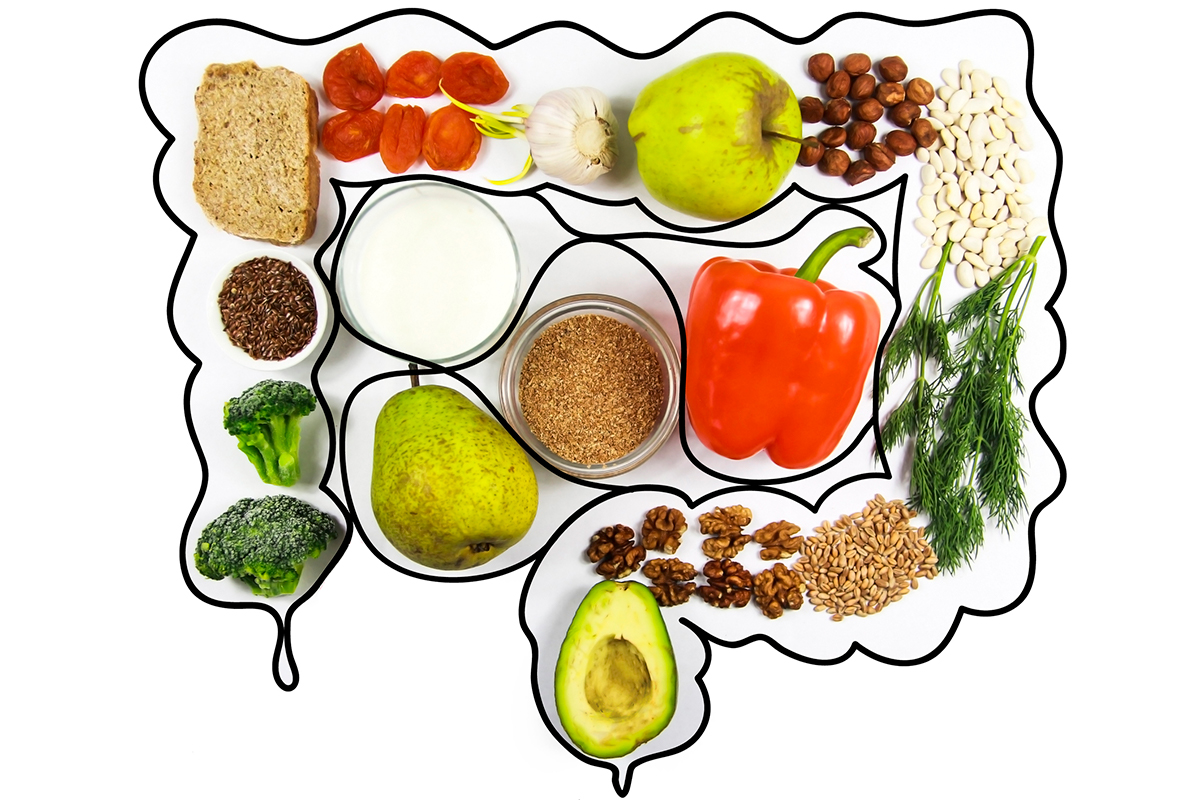Gut health and nutrition
Good gut health is vital for proper nutrition. If your gut is not working correctly, you cannot absorb the nutrients you need from your food. The lining of your gut needs to be at the optimal thickness for absorbing nutrients. This means that the cells making up that lining need to be dividing and multiplying at the correct rate. These cells need to have sufficient fuel to function correctly; otherwise, the intestines’ lining does not absorb nutrients as effectively as it should. The lining of the gut and the gut microbiome also produce vitamins, which your body can absorb. Nutrients produced in the gut to include vitamin K and many B vitamins.
Gut health and digestion
The gut microbiome is also involved in breaking down the indigestible elements of your food. These include certain kinds of dietary fiber. Without the correct microflora, your body cannot break down certain fiber types, so you cannot digest it. The amount of nutrition, including calories that you can extract from your food depends on the species of bacteria living in your GI tract.
Gut health and infections
A healthy gut is essential for protecting you against infections. If your gut is not healthy, you become more vulnerable to infections of the GI tract. Healthy gut microbiome can defend itself against pathogens. It stimulates your intestinal cells to produce substances that kill invading bacteria. Healthy gut microbiome changes your GI tract’s pH and makes it too acidic for certain types of infectious bacteria. In addition, a healthy gut microbiome consumes unavailable nutrients. In addition to preventing infections in the gut itself, a healthy microbiome also promotes better immune function throughout the rest of the body. When your gut is healthy, the number of white blood cells available to fend off pathogens is increased.
Gut health and mental health
Research shows that the health of the microbiome is closely tied to your mental health. While the exact mechanisms aren’t fully understood, it’s known that the gut is responsible for producing neurotransmitters such as serotonin. There are close links between poor gut health and anxiety, as well as poor gut health and depression. For those struggling with mental health issues, working to restore gut health may help.
How to improve gut health
You can support the health of your GI tract by improving your diet and overall lifestyle. If you want to improve gut health, the first place to start is with what you put into your digestive system. Aim for a balanced diet high in prebiotic fiber and low in processed food with refined carbohydrates. Foods good for gut health include high-fiber foods like onions, artichokes, and pulses. The worst foods for gut health are processed foods with white flour and added sugar. A gut health diet could also include foods with probiotics for gut health, such as live yogurt and kefir. You might also try probiotic gut health supplements to improve your microbiome.
If you’re suffering from GI problems or other ailments that don’t resolve by themselves, seek medical advice from a qualified professional. It would help if you also talked to a healthcare professional before making significant lifestyle changes or starting supplements, including probiotics. While these bacteria cultures can be beneficial, they are not safe for everyone. Speak to your doctor first.
Tap for recommended posts on the tags you don’t follow





